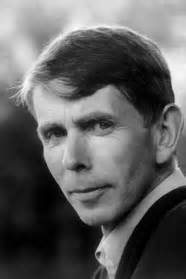A Quote by Ronald Frame
I think, when you are writing non-fiction, you feel there's an obligation to get it absolutely right, so all your factual details have to be, have, you know, to go through a long list of them and tick them. I'm not saying that's not important in fiction, but I think you have a bit more leeway; you can suit yourself.
Related Quotes
But I think writing should be a bit of a struggle. We're not writing things that are going to change the world in big ways. We're writing things that might make people think about people a little bit, but we're not that important. I think a lot of writers think we are incredibly important. I don't feel like that about my fiction. I feel like it's quite a selfish thing at heart. I want to tell a story. I want someone to listen to me. And I love that, but I don't think I deserve the moon on a stick because I do that.
Academic writing you have to get right. Fiction you have to get plausible. And there's a world of difference. In a way, if someone says this didn't feel exactly right, I don't care. But that is not okay to do in academia - it's not about feeling. You want to establish a pretty solid case. So did this allow me to express things differently? Absolutely. Another thing I've been thinking about as an academic: our writing style is expository, and in fiction, withholding information matters quite a bit. Withholding things in academia - there's no place for that!
I think all of us begin as writers. I wanted to be a writer from the time I as eight, long before I heard of jazz. The question is, once you have that obsession, what is your subject going to be and you often don't know for some time. It might become fiction, it might be non-fiction, and if it's non-fiction it can go in any number of directions.
That is as true for fiction or non-fiction. The writer has to really know their subject. It is really important to remember that the readers are a lot smarter than the writer. Also, good writing has to do with rewriting. You will never get it right the first time. So you rewrite and rewrite again until you get it right. Until you, and the reader, will be able to visualize what you're writing about.
In some ways I spend longer at non-fiction because there are a lot of different threads to bring together. But non-fiction is more reflective than immersive. The problem with fiction sometimes is that you have to leave the real world to enter the fictional one. And that takes so much, goes into your head for so long?.?.?.?I don't know, I just feel less inclined toward that these days, and more inclined to remain in my own life. I do like really good fiction, but it's getting harder to hold my attention in a novel.
The longer I've been writing scripts, the more I find that you have to give the artist more leeway or else you'll just be disappointed. You can't force them to draw every image that's in your head. Since I'm a horrific artist, I wouldn't want them to anyway. So I definitely give them a lot more leeway now than I did at the beginning.
A couple of pieces of advice for the kids who are serious about writing are: first of all, to read everything you can get your hands on so you can become familiar with different forms of writing: fiction, non-fiction, poetry, journalism. That's very important. And also keep a journal. Not so much, because it's good writing practice. Although it is, but more because it's a wonderful source of story starters.
With a novel, you have the reader with you a lot longer, and you owe him a lot more. Obviously you have to have a plot - I say "obviously," although I think a lot of fiction doesn't, and nothing seems to happen. But to me, there should be something that happens, and it should be at least vaguely plausible. And because the readers are going to be with these characters for a long time, you have to get to know them and like them and want to know what happens to them.
It's interesting how many science fiction writers get going when they are very young. I was on a program with Greg Bear and he mentioned that he had gotten started writing when he was eight. And I began writing when I was 10. I think we're influenced by the stuff, we find it and we love it and we're influenced by it....I know I collected my first rejection slip when I was 13, and I went on collecting them for a long time after that.
The right thing to do is to thank them for their work, let people know that they're moving on, and ... you don't really have to explain all their personal details. It's more important to leave them with their dignity... and let them go on to live another day. Remember, what you say at that meeting, that's their reputation.







































